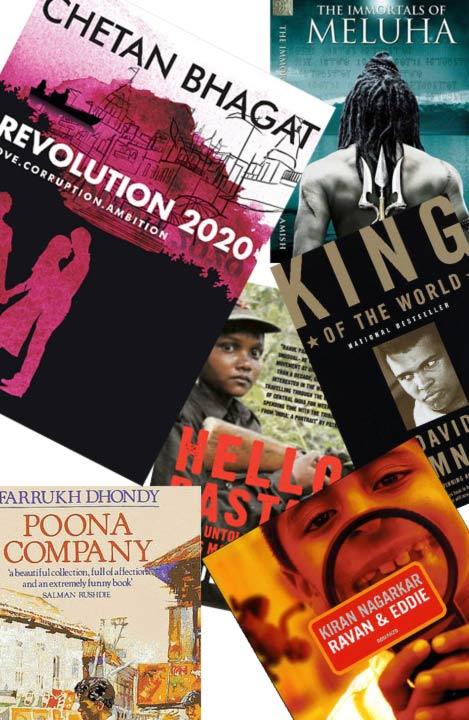
With Jaipur Literature Festival around the corner, we list out ten of our most favourite books by the visiting authors.
Anyone who's been there will tell you what a great place the Jaipur Literature Festival is. The annual gathering that started out as a rather small and little-known affair has become the place to be and be seen at.
According to an estimate, over one lakh people are expected to attend the festival this year.
The year also sees a stellar line-up of authors of fiction as well as non-fiction books. In the pages to follow, we bring to you the ten books we've loved and ones we recommend you must carry to JLF this year (and ideally read too, if you haven't already)!
Click here for Rediff Realtime News on the Jaipur Literary Festival!
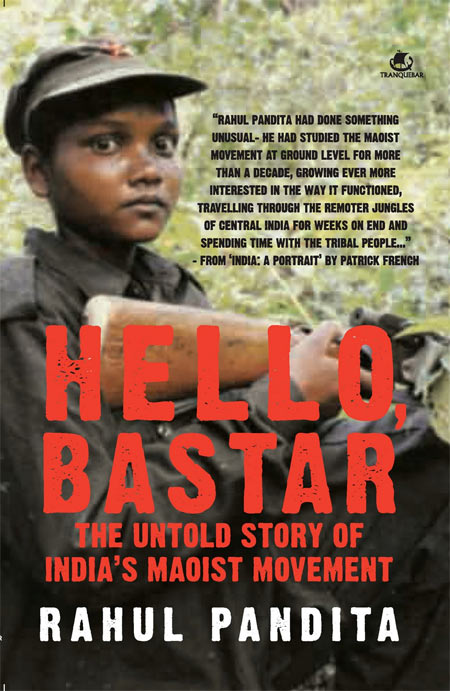
The '70s in India: the heart of the country, inaccessible, undeveloped, poverty-stricken, yet bounteous in mineral and forest wealth remains invisible to the rest of India till a group of people decide to change things.
They begin organising the exploited tribal population that inhabit this hopeless vastness to fight for their simple rights: to gather forest produce and to live a life of dignity and honour.
When things don't change through peaceful protests this group resorts to arms and sets up a base in the jungles to take on the might of the State in the hope of changing the system through violent means.
These are the Maoists in India.
Rahul Pandita's authoritatively-written Hello, Bastar: The Untold Story of India's Maoist Movement takes you through the journey of this Maoist struggle, their organisational and leadership structure, their highs and lows.
It is a must-read for those who have a keen interest in understanding the socio-political-economic reasons behind the rise of one of the most violent armed rebellions in independent India.
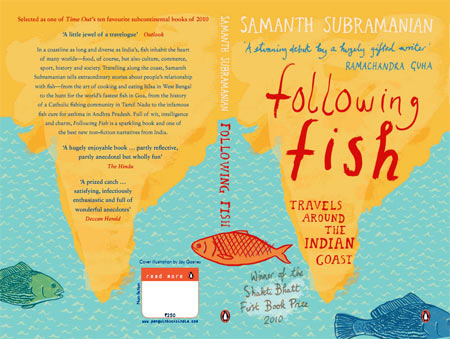
Perhaps one of the most delightful books to have come out of the India last year, Following Fish is a fascinating narrative of one man's journey along India's coastal states.
Samanth Subramanian explores life and culture of the people in India's nine coastal states using fish as a motif.
Subramanian is somewhat wary of calling the book a travelogue and rather likes to see it as a form of narrative journalism, which in more ways than one it is.
Either way, Following Fish makes for a fantastic read and is one book you shouldn't be seen without at JLF.
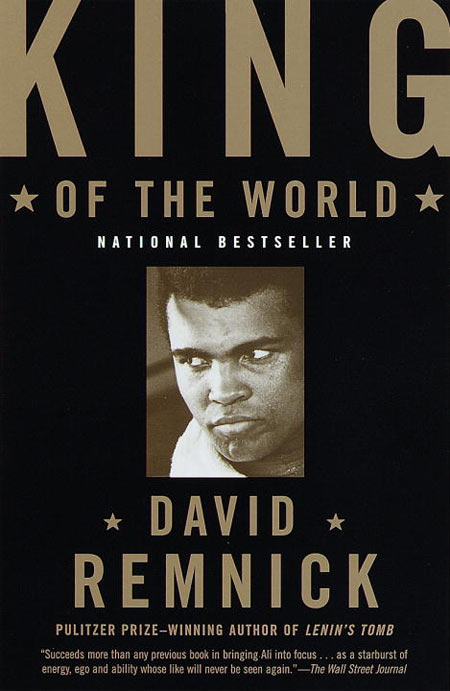
King of the World by David Remnick continues to remain a classic example of narrative journalism.
Remnick, editor of The New Yorker and Barack Obama's biographer, narrates in mind-boggling detail how Mohammed Ali transcended being an athlete to become a figure who would mirror the times he lived in.
A master-storyteller, David Remnick tells us the story of an icon in a way it has never been told before or ever since.
Don't miss: He floated like a butterfly, stung like a bee
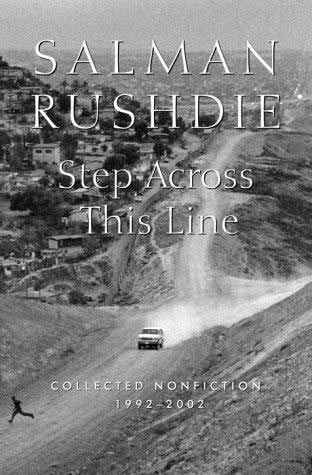
Will he, won't he? The question of whether Salman Rushdie will show up at JLF continues to haunt every single person looking forward to the annual event.
We'd like to believe Rushdie, a man known not to give in without a fight, may probably just show up after all. And hence, in all our optimism, we'd like to recommend his Step Across this Line to you.
Surely, there have been more famous books of his -- Midnight's Children or Haroun and the Sea of Stories or Satanic Verses for that matter.
Step Across this Line however is interesting because it is a collection of Rushdie's non-fiction between 1992 and 2002 in which he talks on an exceptionally wide range of topics -- his fascination with soccer, his years in England, the state of the novel, U2, the fatwa, a superbly worded commencement address and an exhaustive but engaging essay on the Wizard of Oz that is as much about the movie as it is about the concept that has always found its way into his writings -- the idea of home.
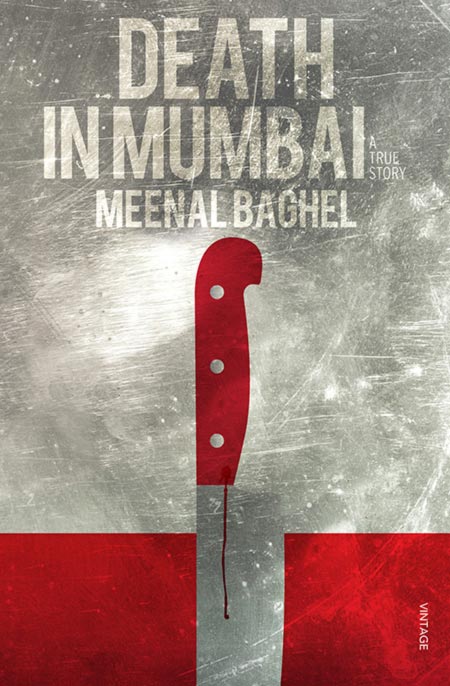
In 2008, when aspiring actress Maria Susairaj and her naval officer boyfriend Emile Jerome were arrested for murdering Neeraj Grover, a young TV executive living in Mumbai, it was a case that caught the fancy of every journalist.
This was stuff that Bollywood was made of. Even though Ram Gopal Varma did make a movie out of it, Meenal Baghel, editor of Mumbai Mirror, decided to take the road less travelled.
For over two years, Baghel followed the case, interviewed practically everyone associated with the drama (including RGV) and produced this book.
If however you're looking for a sensational page-turner, this isn't your book. Death in Mumbai is more analytical as it examines not just the people associated with the case but also sheds light on the socio-cultural milieu that the young upwardly mobile Indians are finding themselves in.
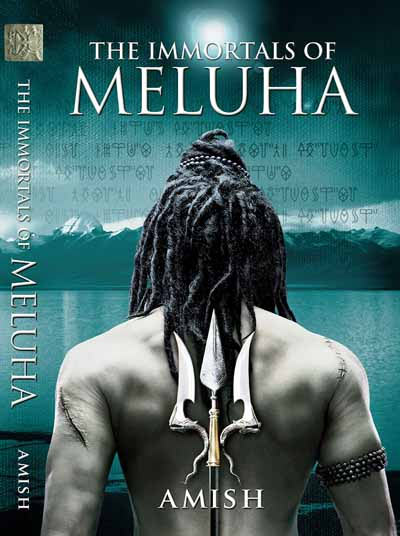
If a page-turner is what you are looking at however, Amish Tripathi's Immortals of Meluha should be on your list.
The first in what the author calls the 'Shiva Trilogy' -- the second book, The Secret of the Nagas is also out -- is an interesting novel that explores the idea that before he became a god Shiva was just a human.
With Karan Johar picking up the movie rights to the book Immortals of Meluha has become (if it already wasn't) one of the hottest books in the market today.
Do read it, though we must warn you it is no The Da Vinci Code.
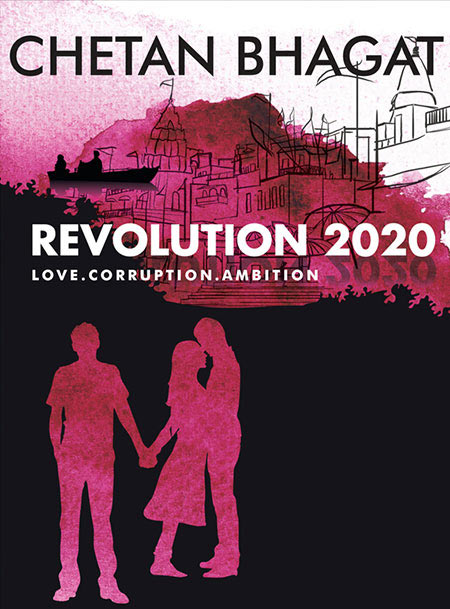
Well, or any other Chetan Bhagat novel for that matter.
Much as many of us ridicule Bhagat as a lowbrow novelist, the fact is that the man's books sell -- there's probably never a day that'll go by when you don't come across someone reading a Bhagat.
If you have read all his books, you'd probably know that Revolution 2020 is his latest. However if you haven't, it you could well start off with this one.
Set in Varanasi, Revolution 2020 narrates the tale of three childhood friends and how their individual ambitions come in the way of their relationships with each other. Written in classic Chetan Bhagat style, Revolution 2020 had been a bestseller even before its release.
More recently the book came in the news with this 'erotic' and rather intriguing advertisement that we caught floating on the Internet. Watch it here!
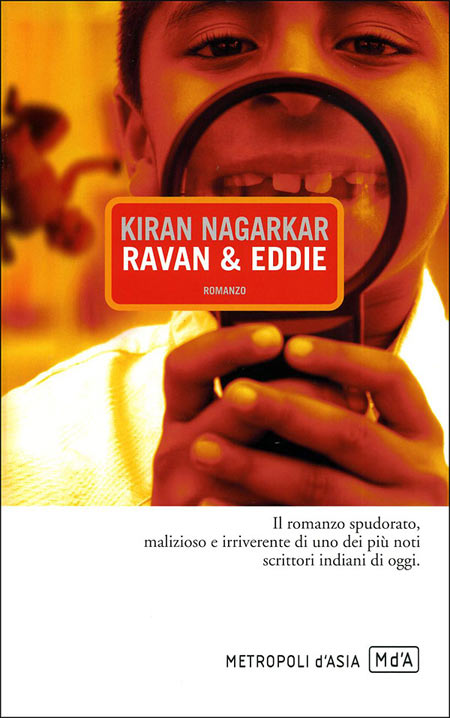
Kiran Nagarkar's tale of the eponymous characters is one that has become famous enough to make its way to college syllabuses.
Set in a Mumbai chawl, Ravan and Eddie takes us through the lives of the two young boys growing up in the same building but living in two disparate worlds.
Funny and poignant, Ravan and Eddie is a book that is gripping and makes for a fast read even as it offers sharp insights into life in Mumbai as also what it meant to be growing up in a lower middle class family with Shammi Kapoor movies and Afghan Snow for company.
Nagarkar's latest The Extras, a sequel to Ravan and Eddie is fascinating in itself and would also be a book we'd like you to read though only after you've read the first part.
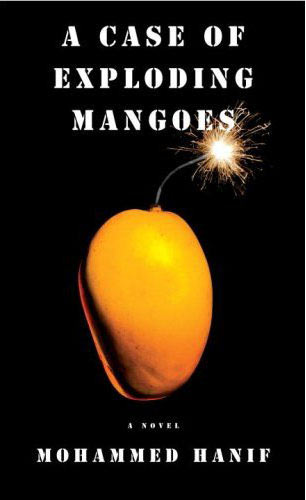
Mohammed Hanif narrates a fictitious (and enthralling) story behind General Zia's real life plane crash in A Case of Exploding Mangoes.
Hailed as one of the best books to have come out of Pakistan in the recent past, A Case of Exploding Mangoes has a dark satirical style that draws you into the lives of its principal characters -- Under Officer Ali Shigri and Under Officer Obaid of the Pakistan Air Force Academy as also the mindset of Pakistani military.
Hanif has since written one other book -- Our Lady of Alice Bhatti, a story of a junior staff nurse, recently released from prison.
Also read: Mohammed Hanif on what it means to be a writer in Pakistan
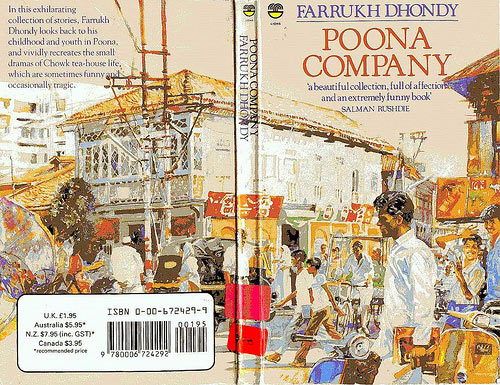
Perhaps the oldest book in this list, Poona Company is also perhaps the most charming narrative of India of the '50s and '60s.
Through a collection of nine interlinked stories set in Poona (now Pune), Farrukh Dhondy narrates the stories of a set of disparate young men as they cope with what life throws in their direction.
In a style that is reminiscent of the Marathi author PL Deshpande, Dhondy's book and indeed his characters are funny, memorable and so very human you cannot help but notice that lump in your throat as you bid them goodbye on the last page.